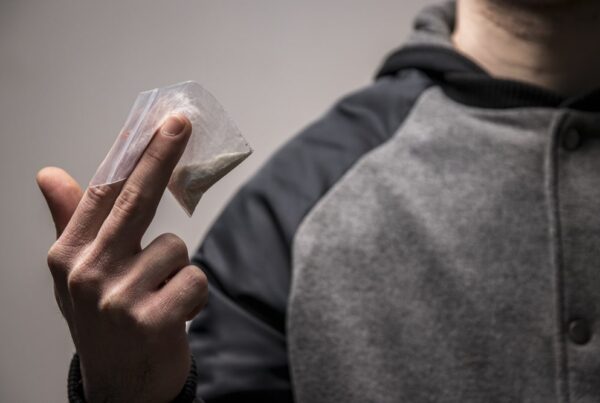Heroin is a highly addictive, illicit substance that is made from chemically altering morphine (a natural psychoactive substance extracted from opium poppy plants). Heroin belongs to a class of drugs called opioids. The United States Drug Enforcement Administration (DEA) classifies heroin as a Schedule I substance, which are defined as “drugs with no currently accepted medical use and a high potential for abuse.” When heroin enters one’s system it travels to the brain and immediately attaches to opioid receptors, interfering with the natural communication process between neurotransmitters, affecting one’s perception of pleasure and pain, as well as affecting the areas of the brain that regulate breathing, sleeping and heart rate. Heroin is an illegal substance and therefore is not regulated by any overseeing entity. There are many different heroin manufacturers, and each has sole discretion over the production process, potency, additives, and purity of the heroin they make, and can change any part of their process at whim. Hence, every consumer of heroin is essentially unaware of the exact substance they are purchasing and ingesting, which dramatically increases their risk of overdose.
Withdrawal Timeline
Due the fact that heroin carries intrinsically addictive qualities, an individual that abuses the substance is likely to experience a variety of adverse withdrawal symptoms when ceasing use. The withdrawal process can be broken down as follows:
- 6 to 12 hours after one’s last dose: the first symptoms of heroin withdrawal are likely to begin and usually peak after two to four days before subsiding, examples include:
- Insomnia
- Excessive sweating
- Nausea
- Chills
- Abdominal cramping
- Anxiety
- Muscle aches and/ or spasms
- 12 to 72 hours after one’s last dose: at this point additional digestive symptoms as well as psychological symptoms will begin, examples include:
- Vomiting
- Diarrhea
- Sleeping difficulties
- Depression
- Mood swings
- Beyond 72 hours after one’s last dose: peak withdrawal symptoms will ensue and can last for up to six days, examples include:
- Intense stomach pains
- Shivers
- Spasms
- Insomnia
- Loss of appetite
Every person is different and will undergo a somewhat unique experience when detoxing from heroin. The severity of symptoms and length of time each system persists will depend on a several contributing factors (e.g. the personal health history of the individual, the potency of the substance, if the substance is mixed with other drugs and/ or alcohol, the length of time the individual abused heroin, the frequency of abuse, etc.).
For Information and Support
If you are concerned for yourself or a loved one in regards to substance abuse and/ or addiction we recommend reaching out for help as soon as possible. If left untreated, substance abuse can result in long lasting and potentially life-threatening consequences. Keep in mind: you are not alone! There is an entire network of professionals that are available to help and support you and your loved one throughout the recovery process. The earlier you seek support, the sooner your loved one can return to a happy, healthy, and fulfilling life.
Please do not hesitate to reach out with any questions regarding our specific program at Haven House Addiction Treatment and/ or general substance abuse and/ or addiction treatment related information. Our highly trained staff is readily available to discuss how we might best be able to help you and your loved one. We can be reached by phone at 424-258-6792. You are also welcome to contact anytime us via email at admissions@hhtxc.com.



